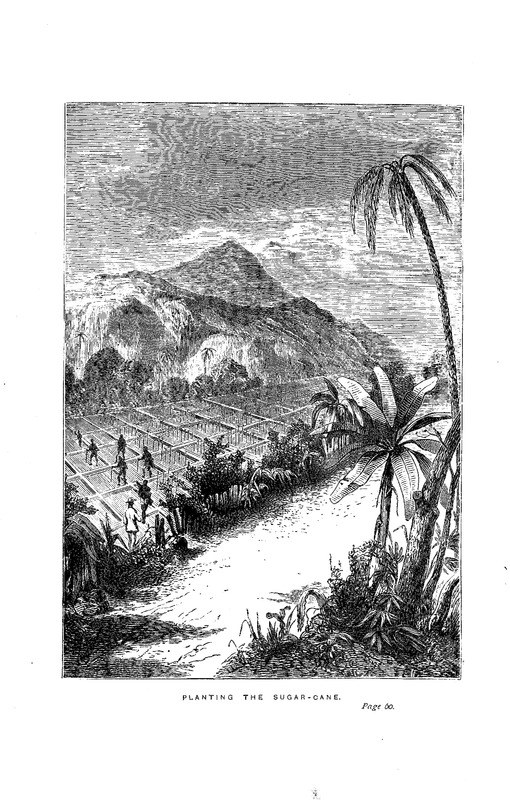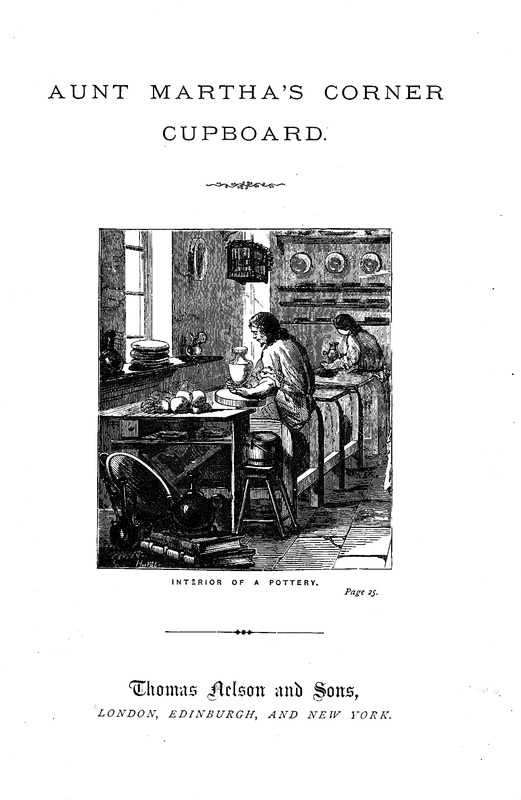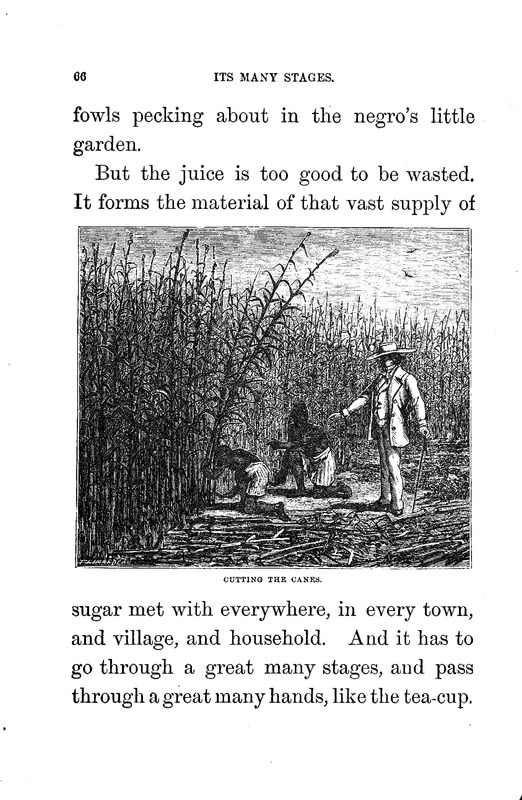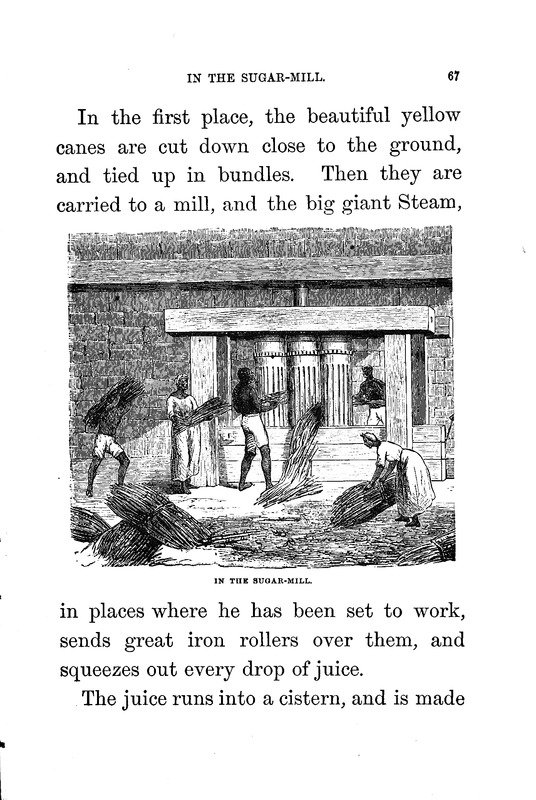Aunt Martha's Corner Cupboard; or, Stories about Tea, Coffee, Sugar, Rice, &c.
Item- Title
- Aunt Martha's Corner Cupboard; or, Stories about Tea, Coffee, Sugar, Rice, &c.
- Description
-
Aunt Martha’s Corner Cupboard is a kind of production story textbook once popular during the nineteenth century, featuring an exemplary adult teacher, who has lively conversations with a young family. The story follows the day-to-day activities of the children, while they eat breakfast, explore the outdoors with walks, and visit artisan shops or factories. Accompanying the children on their exclusions, the beloved parent or family friend (or aunt, in this case) answers the children’s questions and encourages their curiosity and powers of observation. The goal of such books was to model for children how to learn while they play, in the regular course of their lives. The child characters model how to consult adult science books to learn more about what interests them, and they report their findings to the family with oral reports, science demonstrations, essays, letters, and other creative activities. As a result, the books contain long passages of material excerpted from adult nonfiction and adapted for child readers, in the voice of the characters.
At the time these were written, many wealthy families educated their children at home, through parents, tutors, and governesses. Children and parents who read Aunt Martha’s Corner Cupboard are expected to form their own educational experiences after the actions of these characters. The mode of education modeled by the book emphasizes active learning, experimentation, and conversation, over traditional book learning. Over the course of the nineteenth-century, books like this one began targeting girls or boys, indicated by the genders of the sibling characters. Aunt Martha’s Cupboard shows the typical formula for a girls’ textbook. Aunt Martha teaches the girls about manufacturing by exploring items in her corner cupboard, which connects their domestic environment to global trade. Like other middle-class families, they drink tea with sugar, which prompts the lesson on sugar production, including the images shown here.
- Creator
- Kirby, Elizabeth
- Kirby, Mary
- Date
- 1885
- Subject
- production story
- domestic consumption
- manufacturing
- girls' books
- sugar
- Rights
- Public domain
- Obtained permission for digital images
- Courtesy of Baldwin Library of Historical Children's Literature, George A. Smathers Libraries, University of Florida
- Identifier
- Baldwin Library of Historical Children's Literature, George A. Smathers Libraries, University of Florida, Call number: 23h11086
- Bibliographic Citation
- Kirby, Elizabeth and Mary. (1885). Aunt Martha's Corner Cupboard; or, Stories about Tea, Coffee, Sugar, Rice, &c. London, Edinburgh, New York: Thomas Nelson & Sons.







